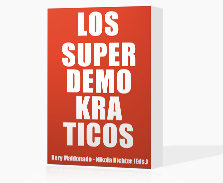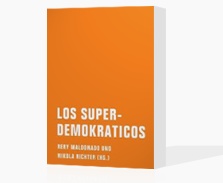by Lizabel Mónica
My country is Cuba, but I am now visiting the United States; Miami, to be precise. An amazing city, full of Latinos (people emigrated from Latin America) and with a similar weather as Havana. The “Latino” term only seems to make sense here, or elsewhere in the rest of the United States and Canada. Latino is a label which I find very active politically, that makes everybody aware of cultural differences and similarities; namely, the differences with a North American, or „gringo“, and the similarities to him of the different Latin American cultures.
Not all Latinos have the same behavior in North America: that’s not true. The most of Cubans, Puerto Ricans, Mexicans (these can be found in greater numbers in Texas), Colombians, Dominicans, among others, are differently adapted to the american dream. In Miami, for example, Cubans seem to get an affordable American dream as a trend. I know from Puerto Ricans that are somewhere in this city, who remain in an area identified as poor and mainly for black people. The first thing is easy to notice there, the second one has to do with the way certain cultural identities fit into the northern imaginary, where a „white people“ thought referring to ethnic and political/economic superiority dominates. When you say white people it’s easy to think in WASPs or descendants of these. Significantly, all that falls out won’t be „white“, which recalls the fact that the idea of race was born in America’s colonial times.
In an informal meeting of students and workers at University of Miami’s Library, I found young immigrants from Puerto Rico, Mexico, Colombia, Haiti, Cuba … all were living in the U.S. for years, and I had the impression that they talked about their countries as if they spoke of a distant past, or of a place that had to be left because the U.S. is a better place. They asked me if I wanted to stay and live here instead of returning to Cuba. When I answered no, they asked me why. Why would someone want to return to a country where the economic and socio-political situation is unstable and even nightmarish, in the sense that it seems a neverending circle with no way out? My answer is not a reason, but an intuition. I want to get back, because I consider important the Latino identity as a way to expand the frontiers from harmful ideologies and from a somehow outdated national identity. I also find important to work with civil society of the countries they leave behind when they migrate. More than a migration in Cuba’s case, and any Latin American country so accustomed to layoffs and families separated by oceans, I believe it’s important to be here while you are there, and vice versa. Not to look to the North or to Europe as a model, but as an example of what we are not nor will we ever be. I therefore propose journey as a learning, not immigration, nor acquiring a new national identity or a dual national identity, but arriving from an expired or in-development national identity (when hadn’t happened this in America?) and heading towards an identity, that crosses the empirical knowledge: that is, the experience of knowledge that can not be otherwise acquired… about the cultural practices of others with their own.
I propose a way to practice immigration as a civic action. My country, my city, are found mostly at intersections. And I’m not the only one…
© Lizabel Mónica
Translation:
Ralph del Valle

 Themen
Themen



